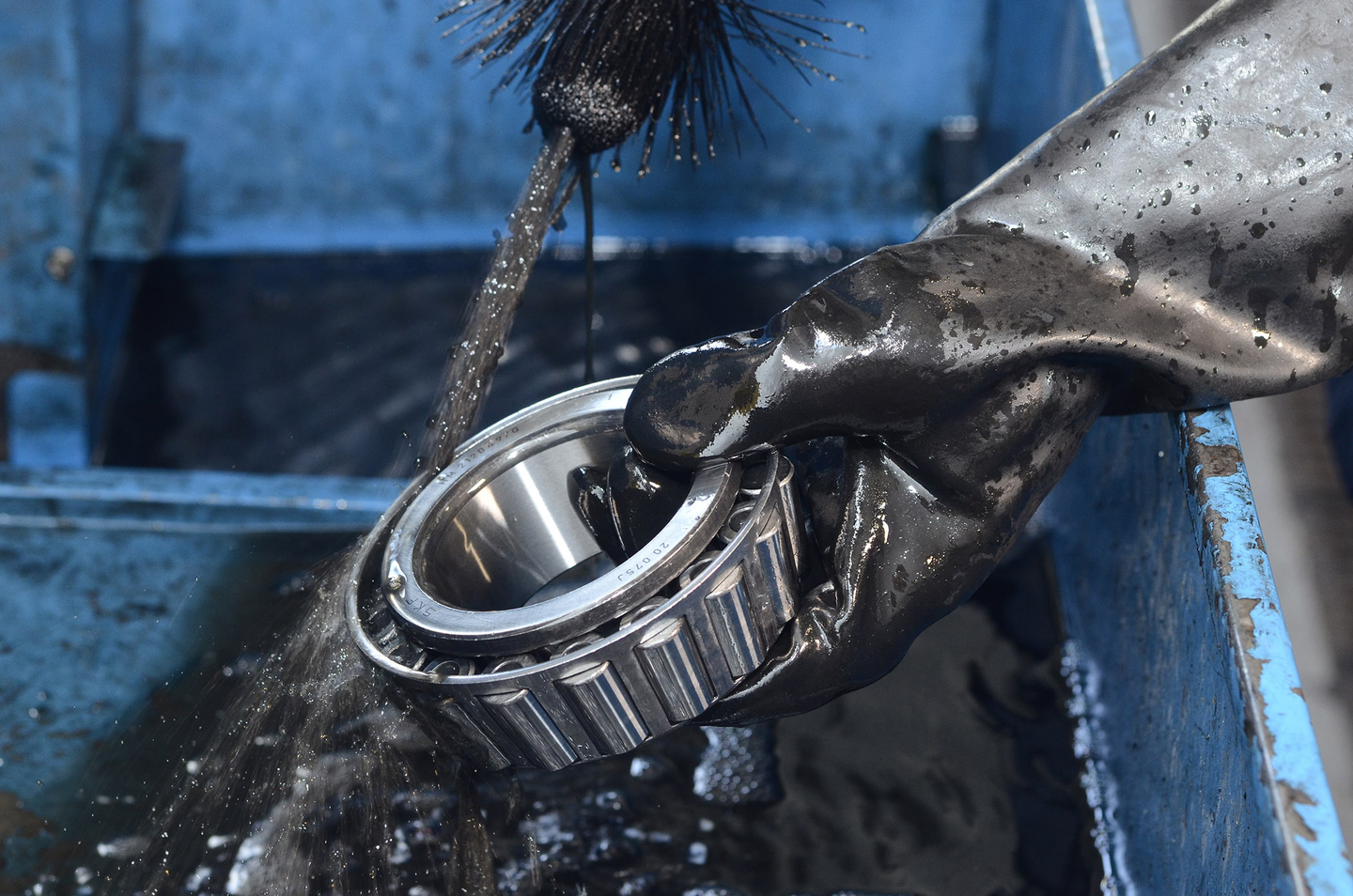Need help? We're here!
(888) 312-8812 Login SignupThe Top 6 Signs of Bad Wheel Bearings
April 12, 2021

April 12, 2021

The wheel bearings play a crucial role in keeping your truck running smoothly. They allow the wheels on your vehicle to spin freely and with as little friction as possible. If they become damaged, the handling and safety of your ride will be greatly affected.
A wheel bearing consists of steel balls that are housed in a metal case called race, and it is often located in the wheel's hub, which connects the wheel to the axle. Each wheel has its own wheel bearing, so it does not necessarily mean that if you replace one, you need to replace the others. Be wary of some dishonest mechanics that say two or more wheel bearings must be replaced at the same time if only one is damaged because this is usually not necessary.
Wheel bearings usually last anywhere from 75,000 miles to 150,000 miles. However, since they are among the most hardworking parts of the vehicle, they can wear out long before they reach the 75,000-mile mark. Factors such as design, improper installation, poor maintenance, and harsh driving conditions often cause premature wear on these parts and cause them to fail earlier than expected.
The good thing about wheel bearings is that you’ll know when they go bad, thanks to a few obvious signs. Here are the tell-tale symptoms of bad wheel bearings:
When something is off with the wheel bearing, it usually produces irregular noises, such as whirring, humming, rumbling, or clicking depending on how it is failing. Although a clicking sound is often associated with a worn or damaged outer CV joint, it can also be related to an excessive bearing endplay. It is usually heard when the vehicle is cornering or making sharp turns.
A humming or rumbling noise, on the other hand, often indicates a tire, electrical, or drivetrain component issue. But, it becomes bearing-related if the noise is present when the vehicle drives in a straight line. It even intensifies when you turn the steering wheel slightly to the right or left and when you drive at high speeds. Usually, the side that is opposite the humming sound is the defective side.
Aside from the mentioned above, a grinding noise is another indication of a bad wheel bearing. It typically sounds like two pieces of metal grinding together. It occurs when the wheel bearings lose lubrication and allow a lot of heat to build up inside of them.
When the wheel bearing issues start to get really bad, you’ll experience a loose steering feel. A bad wheel bearing creates a bit of play within the wheel assembly, so your steering wheel also starts to vibrate when you drive at a slower speed. It even gets worse when you step on the gas pedal and accelerate your truck.
Some truckers think this symptom is associated with unbalanced tires. Although the symptoms of both are the same, the vibration from unbalanced tires often occurs at high speeds and not at a slower speed.
Abnormal tire wear can be attributed to a lot of factors, including unbalanced tires, improper inflation, and worn or damaged suspension components. But, it can also be due to bad wheel bearings because when they wear down, they start to loosen up within their housings and lose some of their effectiveness. This, then, leads to uneven tire wear. To know if it’s indeed a bad wheel bearing that’s causing the tires to wear down unevenly, do check for the other symptoms and see if they match up.
While it’s easy to associate this symptom with a defective caliper or equalizer, it can also be an indication of bad wheel bearings. You see, when the bearings are worn and become pitted or corroded, the smooth lining that they require is no longer there and the rough surface starts to cause vibration to the tires. This vibration results in your truck pulling to the side of the worn bearing.
You may also experience your vehicle pulling to one side when you apply the brakes. Although this often indicates bad brake rotors, the real culprit may be worn or defective wheel bearings because of the excessive amount of runout that they cause.
Modern wheel hub assemblies are already equipped with built-in sensors that inform the ABS, traction control, stability control, and other driver-assistance systems. When the wheel bearing becomes loose, the sensor might not be able to provide accurate readings, causing the ABS warning light to come on or the entire system to malfunction.
In extreme cases, the excessive movement caused by too much endplay, which is often due to a lack or loss of bearing clamp, can result in internal and external sensor damage. This, too, can cause the ABS system to malfunction.
Hard particles and constant use and abuse can cause the wheel bearing to wear out over time. When this happens, you will likely experience a rougher-than-usual ride and vibrations. To know if it’s the wheel bearing that’s causing the vibration or wobble, try rocking one of the wheels back and forth and note how much movement or “play” the wheel has.
When you start to notice any of these signs, take immediate action to replace the bad wheel bearings with new ones. Replacement wheel bearings are very much available here at FinditParts. Whether you need new tapered roller bearings, ball bearings, or a wheel bearing assembly, we’ve got you covered. We carry some of the best brands in the industry, including SKF, Parker Chelsea, and Dana Holding Corporation. Feel free to browse our online catalog or use our quick part lookup feature to find the exact wheel bearing that you need. We offer light-, medium-, and heavy-duty truck and trailer parts at competitive prices, so shopping with us means not just convenience but also savings. Place your order with us now!